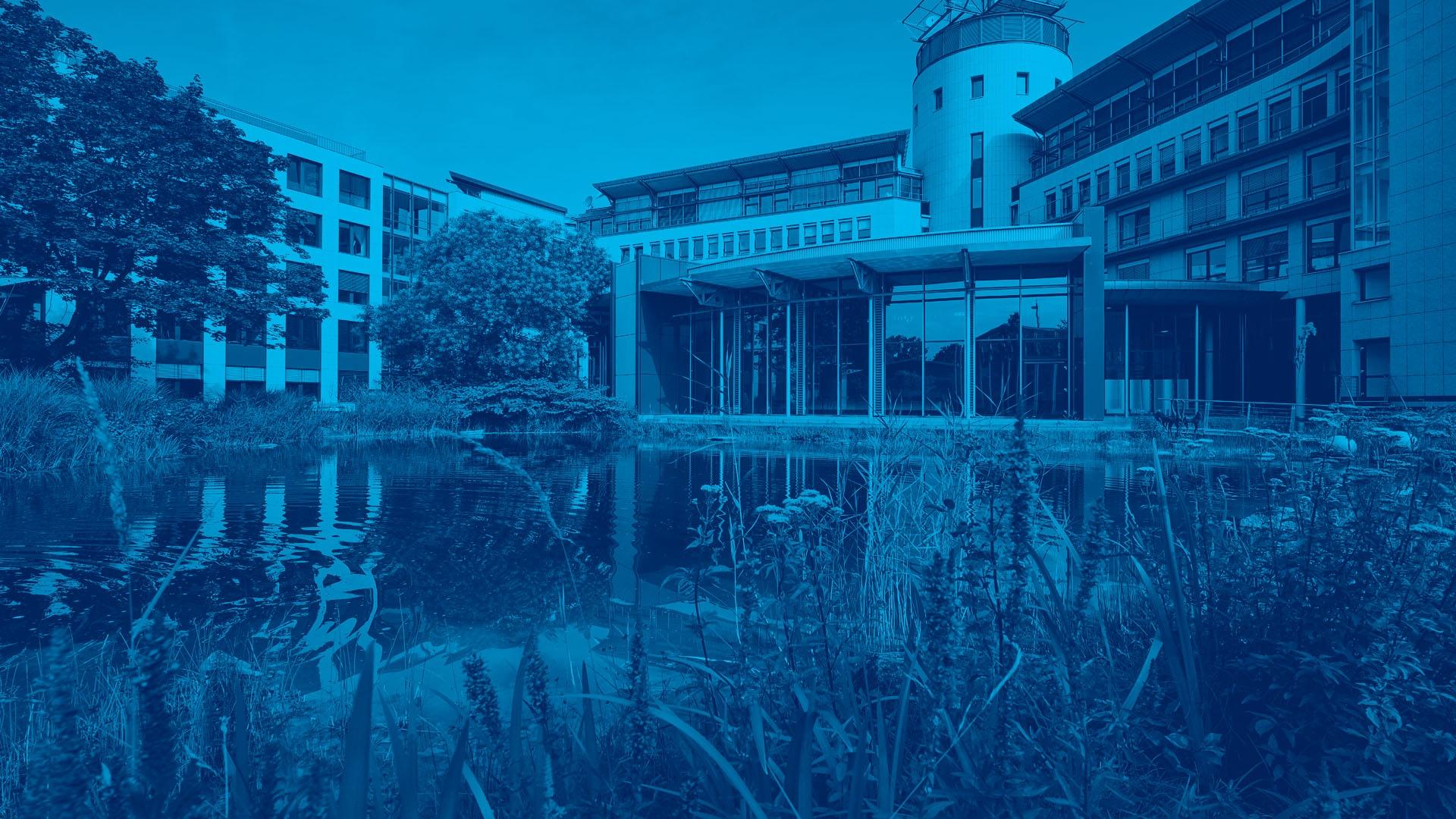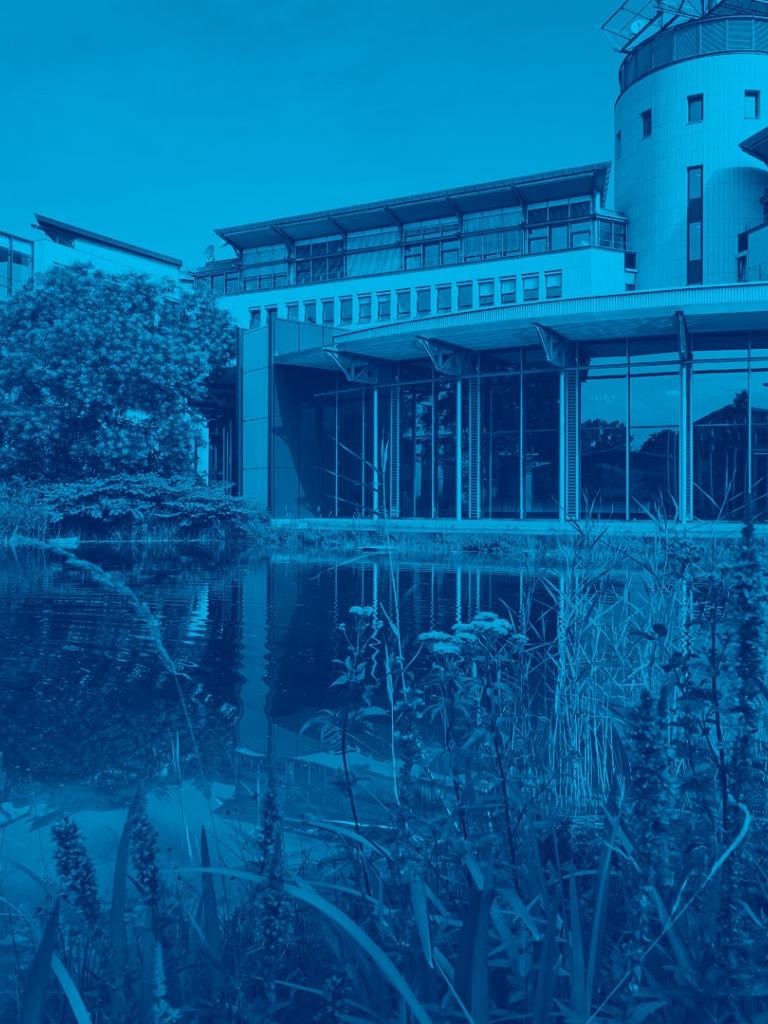
Inside EUMETSAT: meet Livio and Natasa
Inside EUMETSAT interviews Livio Mastroddi and Natasa Strelec Mahovic.


Inside EUMETSAT returns this week with another in-depth interview featuring two more of our outstanding EUMETSAT colleagues: Livio Mastroddi and Natasa Strelec Mahovic! Livio started at EUMETSAT in April of 2013, while Natasa joined the team in March of 2020.
20 June 2023
28 May 2021
Inside EUMETSAT is a series of articles for the EUMETSAT Science Blog that will be published over the next weeks and months. Each week, we’ll introduce you to two valued members of our team: one newcomer, who joined in the past year, and one senior staff member who has spent years at the organisation.
In a time that’s far from ordinary, we hope to use this opportunity to introduce our readers to some of the diverse and friendly faces they might encounter in the course of a normal day at EUMETSAT. It’s our goal to appreciate and celebrate all the different and talented people who work here. We hope these articles will help you discover—or rediscover—EUMETSAT.
Meet Natasa and Livio!


What is your current role at EUMETSAT? What are your current duties?
Livio Mastroddi: I am Director of the Operations and Services to Users (OPS) department. As Director of OPS, my main challenge is to ensure we operate carefully and safely our satellites and their related ground systems, with the final aim of delivering, in a timely manner, good quality data, products and services to our end users. In a few words, our daily goal is to make our users happy and satisfied!
On top of that, we also have other challenges such as taking care of users, responding to their feedback, provide training, ensure long term data preservation and deliver climate services.
Last but not least, we are fully involved in the management of the Copernicus Programme and we support the Programme, Preparation and Development (PRD) department in preparing operations activities for our upcoming satellite systems like MTG, EPS-SG and future Sentinel missions.
Natasa Strelec Mahovic: I am a User Training Officer. In this role, my mission is to support the EUMETSAT users in using our data and products in weather and weather forecast-related applications.
This involves many tasks, from organising and facilitating training courses in Europe and Africa, to developing case studies and supporting users’ case studies on weather applications of EUMETSAT data. On top of this, I also cooperate with partners and consortia like EUMeTrain, the European Severe Storm Laboratory, EUMETNET, our Satellite Applications Facilities (SAFs), etc., in order to provide our users with effective training and relevant material. Recently, I took over the "Weather portfolio team" within the training team, and our main goal is to prepare operational meteorologists and forecasters through appropriate training, for the new generation of EUMETSAT satellites, MTG and EPS-SG.
Do you normally interact with your interview counterpart and his/her division? How?
LM: Indeed, I do not interact on a regular basis with Natasa but, with our offices on the same floor, we do have opportunities to have nice chats while having a coffee together. Unfortunately, we haven’t had this chance since the pandemic started in March 2020, but I’m looking forward to chatting with her once things go back to normal.
NSM: My team is part of the User Support and Climate Services (USC) division, which belongs to the Operations and Services to Users (OPS) department that Livio is the Director of.
As a representative of the training team, I attend meetings of the MTG User Preparation project, to prepare our users for the MTG satellite data and products, and also meetings of the User Portal project, that will prepare the requirements and follow the development of a new User Portal. Hence, I often get to collaborate with colleagues from Livio’s department. I have also met Livio on some occasions, as our offices share the same corridor. Unfortunately, due to the current situation, we don’t have many chances to interact in person. This is for me a big drawback, because I am a rather “fresh” member of the team.
What has been your biggest challenge during COVID and lockdown? Do you feel supported by EUMETSAT?
LM: During these difficult times, my biggest challenge has been to work while having very few personal contacts with my colleagues. I believe working from home for such a long time is demanding and requires significant coordination efforts, while potentially decreasing the overall efficiency. Not to mention, it being also more stressful and time-consuming than usual.
As an example, a significant endeavor has been to ensure the continuity of operations and delivery of important data and products to our Member States while, at the same time, guaranteeing safe working conditions for all colleagues. In the end, we have managed to quickly adapt to the situation while continuing to provide a good service, thanks to the joint effort of all people involved. Overall, I think EUMETSAT has dealt with the changes quite well, always making me feel adequately supported.
NSM: On my side, the biggest challenge was getting used to a completely new job remotely, together with not being able to meet co-workers in person. Having to deliver all trainings online, without direct "live" interaction with the participants, was also very demanding. However, EUMETSAT and its management have been extremely supportive, so most of the job was carried out successfully.
Where do you usually work from? How do you interact with your colleagues?
LM: I work from my house in Darmstadt and I interact with my colleagues by all possible means, for example via email, skype, telephone and of course through virtual meetings (webex, zoom,...). I usually go to the office one or two days every week, and I always try to have chats with the few people I see in my department.
NSM: Currently, I work from home, so the interaction is mainly done via zoom, Skype, Webex, and other online tools. This is certainly not ideal, but it still keeps us "together".
What has your experience of EUMETSAT been during normal, non-pandemic times? Why do you like working here?
LM: I had worked in industry for more than 30 years before joining EUMETSAT in April 2013, and it took me some time to get used to a completely different way of working. First of all, I have appreciated the diversity of nationalities, cultures, and backgrounds. In such an international context, I had the chance to exchange experiences with various colleagues from the worldwide satellite operations and meteorology environment.
In particular, I found very rewarding the possibility to work towards EUMETSAT’s core mission in support of weather forecasting and climate activities, as I believe it is such an important contribution to society. I have always found EUMETSAT to be a stimulating and enjoyable organisation where I have appreciated the commitment and knowledge of all colleagues. With my retirement coming next year, I will be at the end of my mandate as Director of the Operations and Services to Users department, and I am happy and proud of this incredibly interesting experience at EUMETSAT. I would definitely do it again.
What has been your experience of EUMETSAT been like so far? Were you able to come to HQ and meet colleagues face-to-face?
NSM: Having previously been a delegate for my country in both EUMETSAT’s Scientific and Technical Group (STG) and Council, I was already quite familiar with it. I always had the impression that EUMETSAT was a modern, well-structured organisation, very successful in doing its job.
As for meeting my team, I was lucky enough to spend some time in the office, despite the pandemic, where I saw some colleagues face-to-face. Actually, I also knew many of them already, having previously worked in the training field.
What book are you currently reading?
LM:
Being Head of Department has its challenges. One of them is the lack of time for hobbies. So for the time being, my preferred readings are the documents for the upcoming STG/AFG meetings...
NSM:
I am currently reading the novel “Circe” by Madeline Miller, but very slowly.
Which weather phenomenon represents you best?
LM:
A sunny and warm day at the seaside and a heavy snow storm represent me quite well.
NSM:
A rainbow.
If expense were not a concern, what would you like to do in the next 5 years?
LM:
I would finally start enjoying my family and travelling as much as possible.
NSM:
I would love to visit Japan, Madagascar, China..., have a three week skiing holiday in different places, have fun with my family and friends travelling, maybe buy a house somewhere far from the city and last but not least, watch the MTG launch live from its launch site J.
According to you, what is the most exciting science/technology innovation in the last century?
LM:
They are so many, but space exploration and exploitation is surely one of them!
NSM:
Internet and mobile technology, as without those I would not be doing almost any of the things I am doing right now!